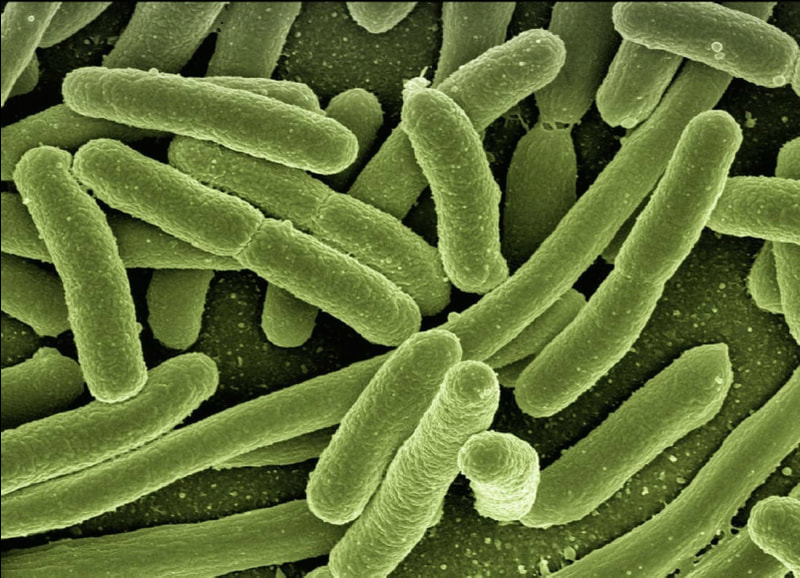Exploring the Relation Between Vegetarianism and Mental Health
In recent years, vegetarianism and other plant-based diets have risen in popularity for both environmental and moral reasons; indeed, studies estimate that producing just one pound of beef requires nearly 300 square feet of land and over 200 gallons of water. While removing meat from one’s diet has clear benefits for the environment, there is some debate over the health benefits of vegetarianism. One concern regarding meatless diets is their impact on mental health, so scientists are interested in studying the potential relationship between vegetarianism and an increased risk of anxiety and depression.
A major challenge when conducting these studies is isolating the impact of a specific factor like diet on mental health, given that other factors such as genetics and upbringing can also influence the likelihood of developing a mental illness. Using the data from 14 different studies, one report examines the relationship between meatless diets and the rates of anxiety and depression across several countries. Of these studies, seven found notably higher rates of mental illnesses among vegetarians, while the rest observed little to no differences between groups of individuals with distinct diets.
One study of over 4000 German adults found rates of anxiety disorder to be almost twice as high in vegetarians compared to non-vegetarians of the same age and health status. While this study was not able to confirm whether becoming vegetarian worsened a person’s mental state, it did show a notable correlation between entirely meatless diets and mental illnesses.
Another study in the report recorded depression rates in over 9000 Australian women in their twenties. 22% of the vegetarians, compared to 15% of the non-vegetarians, reported symptoms of depression. Similarly, a report of American adolescents observed suicide attempts in 18.3% of vegetarian youth compared to 8.6% of their meat-consuming counterparts.
A major challenge when conducting these studies is isolating the impact of a specific factor like diet on mental health, given that other factors such as genetics and upbringing can also influence the likelihood of developing a mental illness. Using the data from 14 different studies, one report examines the relationship between meatless diets and the rates of anxiety and depression across several countries. Of these studies, seven found notably higher rates of mental illnesses among vegetarians, while the rest observed little to no differences between groups of individuals with distinct diets.
One study of over 4000 German adults found rates of anxiety disorder to be almost twice as high in vegetarians compared to non-vegetarians of the same age and health status. While this study was not able to confirm whether becoming vegetarian worsened a person’s mental state, it did show a notable correlation between entirely meatless diets and mental illnesses.
Another study in the report recorded depression rates in over 9000 Australian women in their twenties. 22% of the vegetarians, compared to 15% of the non-vegetarians, reported symptoms of depression. Similarly, a report of American adolescents observed suicide attempts in 18.3% of vegetarian youth compared to 8.6% of their meat-consuming counterparts.
Image Source: klimkin
While none of these studies were able to conclude that meatless diets directly caused higher rates of mental illnesses like anxiety and depression, their results do suggest a potential relationship between diet and mental health. One potential reason vegetarianism might be correlated with certain mental illnesses is that individuals already prone to anxiety or depression might be more likely to stop eating meat. Another possible explanation for this relationship is that there is a nutritional component to mental illness.
One source explains that if vegetarian diets don’t contain proper substitutes for meat, they could result in nutritional deficiencies of vitamin B(12), vitamin D, and iron, which are required for the body’s important cellular processes. If an individual is not getting enough nutrients from their food, whether they consume meat or not, a worsened physical and mental state could result. From these studies, it is important to note that variations in geographic location, as well as the availability of meatless substitutes, could play a role in the results, as data was collected from a range of locations.
As more people start removing meat from their diet, it becomes increasingly important to explore the possible benefits and risks of doing so. While the potential correlation between vegetarianism and declining mental health does not confirm that avoiding meat makes someone more prone to depression or anxiety, being aware of this relationship can help individuals make more informed decisions about their eating habits. More than anything, these studies emphasize the importance of “appropriately planned vegetarian diets”, which encourage individuals to choose plant-based substitutes that can provide adequate nutrients and protein content. Studying the long-term effects of vegetarian diets remains a prominent research focus, and analyzing the results from such studies can inform people whether switching to vegetarianism is a healthy option to help combat climate change.
One source explains that if vegetarian diets don’t contain proper substitutes for meat, they could result in nutritional deficiencies of vitamin B(12), vitamin D, and iron, which are required for the body’s important cellular processes. If an individual is not getting enough nutrients from their food, whether they consume meat or not, a worsened physical and mental state could result. From these studies, it is important to note that variations in geographic location, as well as the availability of meatless substitutes, could play a role in the results, as data was collected from a range of locations.
As more people start removing meat from their diet, it becomes increasingly important to explore the possible benefits and risks of doing so. While the potential correlation between vegetarianism and declining mental health does not confirm that avoiding meat makes someone more prone to depression or anxiety, being aware of this relationship can help individuals make more informed decisions about their eating habits. More than anything, these studies emphasize the importance of “appropriately planned vegetarian diets”, which encourage individuals to choose plant-based substitutes that can provide adequate nutrients and protein content. Studying the long-term effects of vegetarian diets remains a prominent research focus, and analyzing the results from such studies can inform people whether switching to vegetarianism is a healthy option to help combat climate change.
Featured Image Source: Daria Shevtsova
RELATED ARTICLES
|
Vertical Divider
|
Vertical Divider
|
Vertical Divider
|






